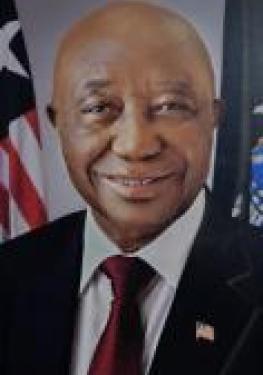The Environmental Protection Agency (EPA) through the United Nations Development Program (UNDP) obtained funding from the Global Environmental Facility (GEF) to support the Cross-Cutting Capacity Development (CCCD) Project for Liberia. The project will support the Government of Liberia to Strengthening National Capacities to Meet Global Environmental Obligations within the Framework of Sustainable Development Priorities. The project has four components:
1. Integrated Environmental Knowledge Management System (EKMS)
2. Enhanced institutional and technical capacities for mainstreaming
3. Improving awareness of global environmental values
4. Updating the National Capacity Self-Assessment (NCSA)
The EPA and the UNDP through the Cross-Cutting Capacity Development Project intends to recruit the service of a National Consultant, to:undertake a financial and economic analysis of monitoring, enforcement, and compliances of Rio Conventions implementation in Liberia. This project is in line with the GEF-6 CCCD Strategy objective 1, 3, and 5 which call for countries to: a) integrate global environmental needs into management information systems and monitoring, b) integrate MEA provisions into national policy, legislative, and regulatory frameworks, and c) update NCSAs, respectively. The goal of this project is for Liberia to make better decisions to meet and sustain global environmental obligations. This requires the country to have the capacity to coordinate efforts, as well as best practices for integrating global environmental priorities into planning, decision-making, and reporting processes. To this end, the objective of this project is to strengthen a targeted set of national capacities to deliver and sustain global environmental outcomes within the framework of sustainable development priorities. The project will be carried out via four linked components. Component 1: calls for the establishment of an integrated Environmental Knowledge Management System to meet global environment and sustainable development priorities, Component 2:focuses on enhanced institutional and technical capacities to mainstream, develop, and utilize policies for implementation of the three Rio Conventions, Component 3: works to improved environmental attitudes and values for the global environment, and Component 4: is the updating of the National Capacity Self-Assessment (NCSA). The project will take an adaptive collaborative management (ACM) approach to implementation, which calls for stakeholders to take an early and proactive role in the mainstreaming exercises, as well as to help identify and solve unexpected implementation barriers and challenges. By taking an ACM approach, project activities and outputs can be more legitimately modified and adapted to maintain timely and cost-effective project performance and delivery. As a National Implementation Modality (NIM) project, its management team will be seated at the EPA.
2.0 Rationale
On one hand Climate change is a central challenge to development in Liberia. Its impacts are already being felt. Sea levels are rising, temperatures are increasing, and rain patterns are changing, threatening the water, food, and health security of the country. Liberia, amongst other countries of the region are among the most vulnerable to the adverse impacts of climate change globally, with poor and marginalized communities likely to be the most severely impacted. Meanwhile, adjusting to the need for climate-resilient development will mean integrating responses to the physical, social, and economic impacts of climate change into all aspects of development planning and investment. The long-term strategic framework of Liberia’s development and its climate change strategy, “Climate Change Policy and Response Strategy, NAPA, NAP and her “National Determined Contribution” map Liberia’s Climate Change aspirations.
Please see details:



